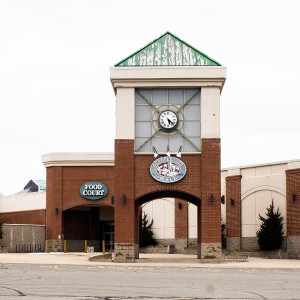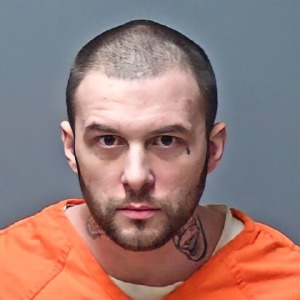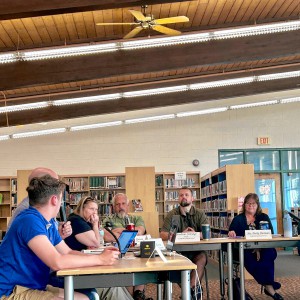As UNH hosts rally against Gaza war, lawmakers weigh campus free speech protections

A sign calling attention to the conflict in Gaza rests against a tent, Thursday, April 25, 2024, at an encampment of tents on the Massachusetts Institute of Technology campus, in Cambridge, Mass. Students at MIT set up the encampment of tents on the campus to protest what they said was MIT's failure to call for an immediate ceasefire in Gaza and to cut ties to Israel's military. (AP Photo/Steven Senne) Steven Senne
| Published: 04-26-2024 10:27 AM |
As campus demonstrations protesting Israeli actions in Gaza continue across the country, New Hampshire lawmakers are seeking to regulate how public colleges and universities respond to questions of free speech.
House Bill 1305 would insert freedom of speech rights on college campuses into state statute. The bill would establish that outdoor areas of campuses “shall be deemed public forums for members of the campus community” and would limit how much colleges and universities could bar demonstrations there.
The bill would also prevent public colleges and universities from discriminating against any religious, political, or ideological student organizations, even if the organization requires members to adhere to its beliefs, standards of conduct, or mission.
Proposed by Rep. Daniel Popovici-Muller, a Windham Republican, the bill follows similar campus speech legislation passed in other states. It was introduced partly in response to instances where conservative or Christian organizations in New Hampshire say they have been held back from participation on campus.
But it also comes against a backdrop of student demonstrations over the Israel-Hamas war that have divided campuses outside of New Hampshire, and that have prompted police crackdowns and fierce debate over the last week.
On Thursday evening, the student organization Palestine Solidarity Coalition UNH held a rally at Thompson Hall Lawn at the University of New Hampshire in New Hampshire.
HB 1305 is not in effect; the bill passed the House in March and has yet to receive a vote in the Senate. Representatives of the University System of New Hampshire have argued that they already have free speech policies that adhere to much of what is in the bill.
Others have taken issue with the provisions of the bill that apply to student organizations, arguing that the bill would prevent universities from banning groups that are discriminatory or exclusionary of certain groups.
Article continues after...
Yesterday's Most Read Articles
 Neighboring landowner objection stalls Steeplegate redevelopment approval
Neighboring landowner objection stalls Steeplegate redevelopment approval
 Women at work on Warren: New combined salon, spa, DIY and retail space opens in former Peter’s Images location
Women at work on Warren: New combined salon, spa, DIY and retail space opens in former Peter’s Images location
 As N.H. coal-fired plants shift to solar, offshore wind beckons
As N.H. coal-fired plants shift to solar, offshore wind beckons
 In Franklin, a Hometown Hero remains busy, 12 years after retiring from the U.S. Postal Service
In Franklin, a Hometown Hero remains busy, 12 years after retiring from the U.S. Postal Service
 For some older Jewish professors at Dartmouth and UNH, opposition to campus arrests feels personal
For some older Jewish professors at Dartmouth and UNH, opposition to campus arrests feels personal
 ‘Paradise Paradox’ – mental-health issues amid the wonders of a ski town
‘Paradise Paradox’ – mental-health issues amid the wonders of a ski town
But supporters say if signed by Gov. Chris Sununu, the bill would provide clearer guidelines for how administrators could act during difficult campus speech situations.
“What we’re doing is putting this into state law, so that universities are fully on notice – they know exactly what’s expected of them,” said Tyler Coward, lead counsel for the Foundation for Individual Rights and Expression, which advocates for free speech on campus.
To some free speech advocates, HB 1305 is merely putting into law practices that colleges and universities should already be following. The 1989 U.S. Supreme Court case Ward v Rock Against Racism set a standard that a government or public authority can impose restrictions on the time, place, and manner of an event as long as they are content-neutral and narrowly tailored.
HB 1305 would codify that doctrine, allowing a public higher education institution to “maintain and enforce reasonable time, place, and manner restrictions” on events, so long as they were both content and viewpoint neutral, meaning that they apply to all groups. That means that a college could set a time limit for a demonstration, or set limits on how close to other buildings protestors could stand.
By some metrics, UNH already has strong freedom of speech protections in its policies. The university received third place in the Foundation for Individual Rights and Expression’s national rankings for free speech in 2024, the second time in three years. Those rankings rely on surveys to determine whether students on campus feel free to voice their opinions as well as the university policies themselves.
One of those, UNH’s Outdoor Events and Assemblies policy, states that organizers of any demonstration expected to draw more than 25 people must apply for a permit to do so. To get a permit they must obtain permission from the Durham Fire Department, the chief of UNH police, the relevant manager of grounds and roads, and other campus officials depending on location.
Demonstrations are not allowed everywhere; UNH’s policy states that they include areas open to the public “that do not serve a specific educational, administrative, research, health, residential, dining, athletic, or recreational purpose.”
Despite UNH’s high rankings for free speech, supporters of HB 1305 argue the state should include protections in statute – and should add new protections for student groups. That argument was driven by incidents involving conservative students.
In 2022, a group of students at the University of New Hampshire Franklin Pierce School of Law attempted to create the “Free Exercise Coalition.
The campus club would bring together students who subscribe to a belief “that it is OK for law students to have traditional Christian values” and to share those values, Jeff Ozanne, a UNH law student and current president of the club, told lawmakers in testimony this year. But the students received tough scrutiny from the Student Board Association, whose members raised concerns that those beliefs could be discriminatory, Ozanne said.
That same year, a different organization, the Christian Legal Society, also struggled to obtain recognition from the SBA and faced similar concerns that their mission and required beliefs would discriminate against others, including LGBTQ+ students.
Facing resistance, the groups sought help from a national organization standing for freedom of religion, the First Liberty Institute, which lobbied for UNH administrators to override the Student Board Association and approve the groups anyway, Ozanne said.
HB 1305 is in part designed to prevent that resistance, supporters say.
But critics of the bill have pointed to the UNH law school disputes as examples of the potential for universities and colleges to be required to approve groups that could discriminate against other viewpoints.
“It would allow student organizations to exclude others from membership based on race, gender identity, sexual orientation, or any other discriminatory beliefs and receive the same benefits as other student organizations, including financial support paid for through tuition, fees, and state taxes,” argued Rep. David Luneau, a Hopkinton Democrat.
HB 1305 is designed to require free speech protections on New Hampshire campuses. But amid arrests this week at campus protests at Columbia University in New York, Harvard University, University of Texas at Austin, and others, supporters of the bill say it wouldn’t necessarily prevent those same outcomes in New Hampshire.
While the bill would prohibit New Hampshire public colleges from creating “free speech zones” that would limit protest activity to certain areas, it would still allow for colleges to disband demonstrations if they “materially or substantially disrupt the functioning” of the institution.
That includes instances where one person or group “significantly hinders” another’s ability to express themselves in the same space, including through violent or unlawful behavior, or the use of threats. The bill also would prevent harassment, defined as “expression that is unwelcome, so severe, pervasive and subjectively and objectively offensive, that a student is effectively denied equal access to educational opportunities or benefits” on campus.
Sen. Tim Lang, a Sanbornton Republican, said that provision is designed in part to prevent activist groups from shutting down speaking events on campus by shouting down speakers or otherwise creating an unsafe environment. “The idea behind what’s called a heckler’s veto,” he said in an interview.
But the provisions could also be used to justify crackdowns on other forms of protest, too.
After pro-Palestinian student demonstrators set up encampments at Columbia University, President Minouche Shafik authorized the New York Police Department to enter campus last Thursday and make arrests, arguing that some demonstrators had used antisemitic language and threats against Jewish students, creating a threatening atmosphere.
In Texas, Gov. Greg Abbott directed State Police to make arrests at the University of Texas at Austin Wednesday. Both Shafik and Abbott have been criticized by free speech advocates for the enforcement actions.
Coward said that theoretically, New Hampshire’s proposed law could allow for similar action, depending on the type of speech and action taken by demonstrators. Addressing the protests outside New Hampshire, FIRE has called on universities to respect peaceful student protests but it has also advised students not to engage in violent behavior.
But Coward also noted that the New Hampshire bill includes a recourse for students to sue a public college or university if they feel that the statute was violated, and to receive up to $20,000 in damages plus attorney’s fees if successful.
“This bill just makes it easier (for students ) to get into state court and to vindicate their rights in state court,” he said. “I think that’s important.”
Lang argued that the bill was designed to protect most speech, but not all speech.
“That protest can’t be calling for the end of the Jewish state,” he said. “Because now you’re stepping into hate speech or discriminatory speech. But they can call for a ceasefire. Pro-Palestinian people can call for Israel to stop. And the same with … the Jewish League could get up and say we want them to stop.”
In a statement Thursday, UNH said it was “deeply committed to the safety of our campus community” and “similarly committed to its role as a public university in protecting free speech on campus.”
“We are responsible, however, for ensuring an individual’s speech is allowed to occur safely,” the statement read. “The bar for any public institution to restrict, or allow others to interrupt, an individual’s speech is, and should be, very high.”







 UNH Faculty Senate calls on university to investigate police response to protest
UNH Faculty Senate calls on university to investigate police response to protest Adam Montgomery sentenced to minimum 56 years on murder charges in young daughter’s death
Adam Montgomery sentenced to minimum 56 years on murder charges in young daughter’s death Following budget cut, Pembroke revisits future of elementary school re-build
Following budget cut, Pembroke revisits future of elementary school re-build
